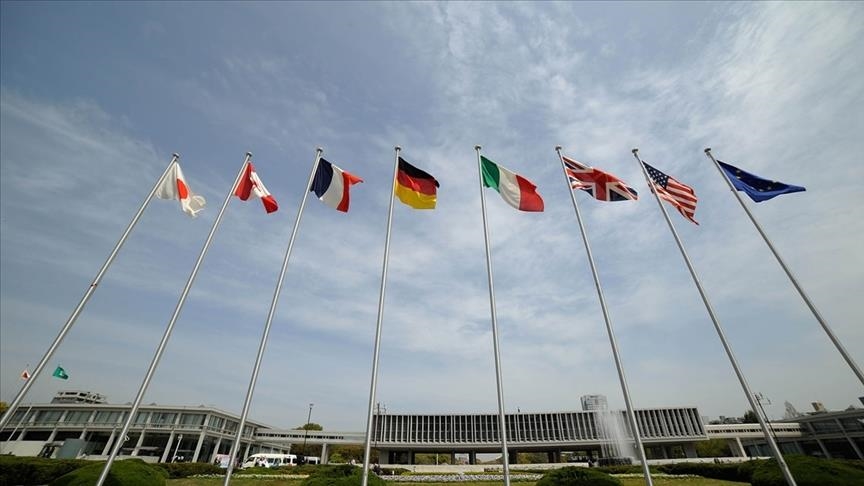G7 leaders condemn Russia’s military intervention in Ukraine, vow ‘severe’ sanctions
'Putin re-introduced war to European continent, put himself on wrong side of history,' G7 leaders say

ANKARA
G7 Leaders on Thursday condemned Russia’s military intervention in Ukraine as “a violation of international law.”
“We are appalled by and condemn the large-scale military aggression by the Russian Federation against the territorial integrity, sovereignty and independence of Ukraine, directed partly from Belarusian soil,” said a statement issued following a virtual G7 leaders’ meeting which was held to discuss ongoing situation in Ukraine.
The statement described the recent move as an “unprovoked and completely unjustified attack on Ukraine,” saying it was preceded by “fabricated claims and unfounded allegations.”
The statement said Russia’s attack on Ukraine constitutes a “serious violation of international law and a grave breach of the UN Charter and all commitments Russia entered in the Helsinki Final Act and the Charter of Paris and its commitments in the Budapest Memorandum.”
G7 countries also said they will impose “severe and coordinated economic and financial sanctions,” on Russia.
The statement urged international community to condemn this attack, to show solidarity with Ukraine, and raise their voice against this “blatant violation of the fundamental principles of international peace and security.”
G7 leaders described the recent crisis as a “serious threat” to the international order, and said it will “bear ramifications well beyond Europe.”
“There is no justification for changing internationally recognized borders by force. This has fundamentally changed the Euro-Atlantic security situation,” said the statement.
“President (Vladimir) Putin has re-introduced war to the European continent. He has put himself on the wrong side of history,” it added.
Donbas crisis and Russia’s military intervention
The February 2014 “Maidan revolution” in Ukraine led to former President Viktor Yanukovych fleeing the country and a pro-Western government coming to power.
That was followed by Russia illegally annexing the Crimea region and separatists declaring independence in the Donetsk and Luhansk regions of Donbas in eastern Ukraine, both of which have large ethnic Russian populations.
As clashes erupted between Russian-backed separatist forces and the Ukrainian army, the 2014 and 2015 Minsk agreements were signed in Moscow after the intervention of Western powers.
The conflict, however, simmered for years with persistent cease-fire violations. As of February 2022, some 14,000 people have been killed in the conflict in eastern Ukraine.
Tensions started escalating late last year when Ukraine, the US and its allies accused Russia of amassing tens of thousands of troops on the border with Ukraine.
They claimed Russia was preparing to invade its western neighbor, allegations that were consistently rejected by Moscow.
Defying threats of sanctions by the West, Moscow officially recognized Donetsk and Luhansk as independent states earlier this week, followed by the start of a military operation in Ukraine on Thursday.
Putin said the operation aims to protect people “subjected to genocide” by Kyiv and to “demilitarize and denazify” Ukraine, while calling on the Ukrainian army to lay down its arms.








